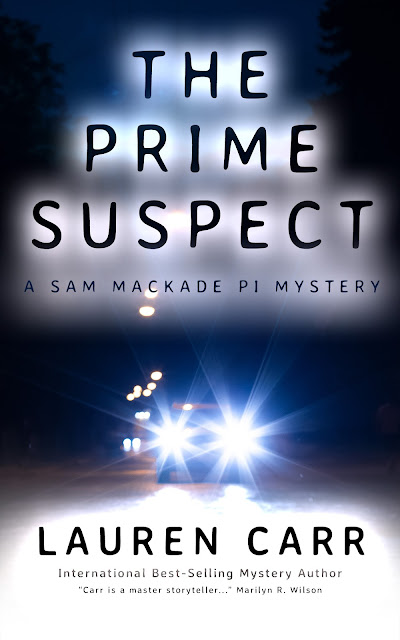The Penguin Press
ISBN: 978-1594203176
Published Jan 23, 2012
Hardcover, 288 pages
Both my kids take music lessons. My
daughter plays the piano and my son plays the violin, and they're
both good at it. I, on the other hand, have a hard time grasping the
concepts of music as I watch my kids quickly apply what they are
taught. So when I saw Guitar Zero, I knew I wanted to read it.
Almost 40 year-old professor of
psychology Gary Marcus decides to learn to play the guitar even
though he had been previously told he has no sense of rhythm
whatsoever. Marcus really desires to play guitar, and so he embarks
on a quest to find out if he could learn to play even at his age and
with no previous or innate musical talent. He sets out to explore the
questions of whether music is built into the brain and how we learn
to become musical.
I am always fascinated with the topic
of the science of learning and this book was right up my alley. I
really liked the fact that Marcus not only shares with us the latest
studies on the human brain with regards to music, meets with and
relates the views of scientists, teachers, famous musicians and other
experts, but he also applies this knowledge to himself as a new
musician. This personal aspect of the book prevented it from being a
dry account of scientific literature. His fun experience of attending
DayJams, a rock-and-roll summer camp for kids where he got to play in
a band with 11 year-olds made me smile as Marcus relates his
innermost and honest feelings about it.
I especially liked reading 1) about the
differences in the way children and adults learn music and that one
is not necessarily better than the other, 2) why learning music is
hard–it has to do with our memory, 3) that music taps into two
different brain reward systems at the same time rendering music as
cocaine for the brain–explains the rush musicians get, 4) that both
talent and practice matter, and finally, 5) that learning a new skill
such as music makes us happy.
Having said all this, Marcus explores
man's physical and mental nature in relation to music, which I found
thought-provoking and insightful, but fails to acknowledge the
spiritual nature of man in relation to it. The closest he comes to
expressing it is when he talks about the pleasure we get from music
that can be derived from a single note. He states, “...in the right
circumstance, that resonance can bring a sublime, almost unearthly
sense of connectedness to the universe.” (p.130)
Essentially, though, Marcus' theories
stem from the belief that man has evolved. From my experience in
reading scientific literature, evolutionists are baffled by the fact
that man has a consciousness, pursues music and art, and has moral values.
The book Life Ascending, while favoring a mere biological
explanation admits: “When we ask how a process [evolution] that
resembles a game of chance with dreaded penalties for the losers,
could have generated such qualities as love of beauty and truth,
compassion, freedom, and above all, the expansiveness of the human
spirit, we are perplexed. The more we ponder our spiritual resources,
the more our wonder deepens.” Indeed.
When it comes to music and man's love of everything it
encompasses—composing, playing an instrument, and deriving pleasure
and awe that makes our spirits soar from listening to it—it seems
logical to me that this awareness and attraction to music is placed
in humans by an intelligent Creator in whose image we are created and
who wants us to worship him with music and song as understood in
Ephesians 5:19. I couldn't help thinking of this as I read this book.
However,
even though I don't know much about the mechanics of music, I was
impressed by how much Marcus learned in such a short time and how well he told it all in his new book. I
sometimes struggled to understand the technical guitar jargon but it
did not detract from the book's overall topic at all. A guitar player
or any musician for that matter would have been able to relate, I'm
sure.
After reading Guitar Zero, I have a
new-found appreciation for music and musicians. I recommend it to all musicians, parents, and anyone interested in the science of learning,
guitar playing and music in general. Marcus states, “Music is the
perfect storm for the human mind: beautiful in form, intricate, and
eternally new.” (p.145) I wholeheartedly agree.
I will count this book toward the following challenges: A - Z Book Challenge
Reviewed by Laura
About the author:
Gary Marcus is an award-winning professor of psychology and director of the NYU Center for Language And Music (CLAM), where he studies evolution, language, and cognitive development. He has written three books about the origins and development of mind and brain, including, most recently, Kluge: The Haphazard Evolution of The Human Mind, which was a New York Times Book Review Editors’ Choice.
He is also the editor of the The Norton Psychology Reader and the author of numerous science publications in leading journals, such as Science, and Nature. His essays have appeared in forums such as Wired, Discover,The Wall Street Journal, and The New York Times.
Connect with him here: Website | Facebook | Twitter
To read more reviews, visit the TLC Book Tour page.
Disclosure: Thanks to The Penguin Press and TLC Book Tours for sending me this book for review. I was not compensated in any other way, nor told how to rate or review this product.
Disclosure: Thanks to The Penguin Press and TLC Book Tours for sending me this book for review. I was not compensated in any other way, nor told how to rate or review this product.









Post a Comment
Thank you for commenting! I appreciate your feedback.